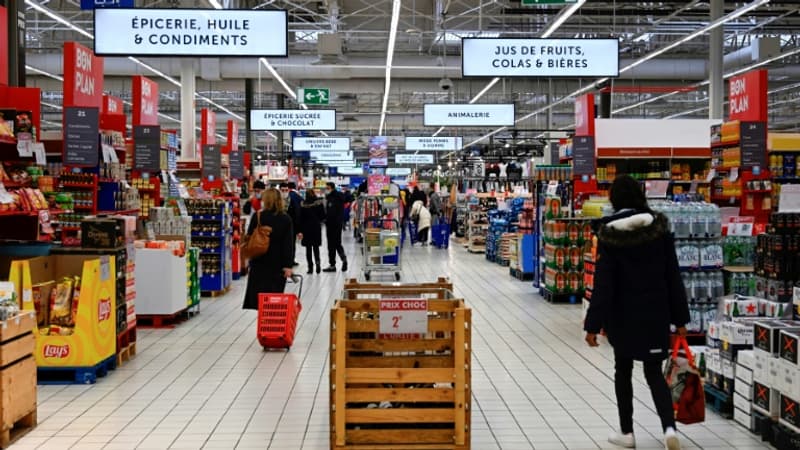Inflation reached 5.7% in March in a year in France, driven by the increase in food prices, its main driver, according to a final estimate revised slightly upwards this Friday by INSEE.
The National Statistics Institute had previously estimated inflation at 5.6% year-on-year last month. The rise in consumer prices, however, marked time compared to February (6.3%), mainly due to the slowdown in energy prices.
Year-over-year, food prices continued to accelerate, rising 15.9% in March (after 14.8% in February). Both fresh products, such as fruits and vegetables, and non-fresh products, such as bread, cereals, meat, cheese, chocolate or drinks, are affected by this trend. Driven by clothing and footwear, the prices of manufactured products (4.8%) registered a slight increase in March.
Sharp slowdown in energy prices
Conversely, the rise in energy prices slowed down sharply (4.9% in March compared to 14.1% in February) due to a sharp decline in oil products and a more modest slowdown in gas, which offset an acceleration in electricity prices. The prices of services also slowed down slightly in March (2.9% compared to 3% in February).
Core inflation, which excludes the most volatile elements such as energy and certain food products, and thus makes it possible to identify an underlying trend in price developments, rose to 6.2% annual in March, after 6.1% in February.
Since the takeoff in consumer prices, under the effect of post-Covid supply chain disruptions and after the war in Ukraine, the inflation rate has returned to levels not seen since the 1980s. gradually fall back to 5% in June, INSEE predicted in early February. The Harmonized Index of Consumer Prices (HICP), used for comparisons across Europe, stood at 6.7% year-on-year in March, up from 7.3% in February.
Source: BFM TV


